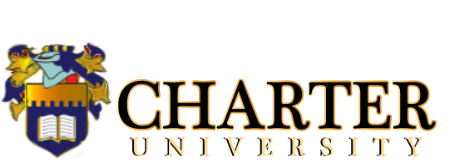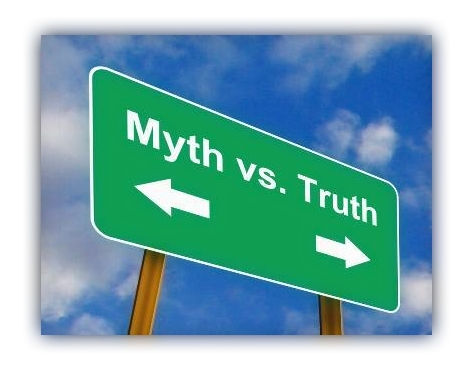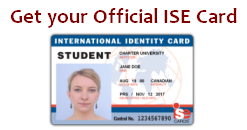About Charter University
Formed: 1994 Status: Private International University Official website address: www.charter.university Official Radio Station: 'Charter University Radio' (available throughout this website ) announcements in 9 languages.
Motto: LATIN 'Meliora Sequimur' Motto - ENGLISH 'We aim for the best' Mission: 'To promote quality international higher education'
Official School Colors: (former)
Navy Blue
& Yellow 1994 - 2002
(current) Burgundy & Gold
2002 - Present
Location: Represented online and internationally via Approved Course Delivery Partners.
Modes of Completion: Full-Time Study (via Approved Course Delivery Partners) Distance and Online Study Credit Transfer and Portfolio Assessment
Excluded Courses: NO Medicine or similar Health related subjects are ever available for study via Charter University.
Available Disciplines: Charter University is composed of 11 Faculties offering degrees in the following Disciplines: Arts The Discipline of a degree indicates the Faculty under which the degree program was completed. For instance: A Bachelor of Arts in History is completed under the Faculty of Arts. A Master of Business Administration in Business Management is completed under the Faculty of Business Administration. A Doctor of Divinity in Religious Studies is completed under the Faculty of Divinity. Many Subjects can be completed under different Faculties. For instance, Bachelor of Arts in Geography and Bachelor of Science in Geography. Fees: from $18,000 for a four-year degree course. Charter University is proudly a private international universityFrom the outset, Charter University was determined to establish its private and international nature, operating independently of any single national education system or single national jurisdiction. This allowed Charter University the freedom to explore and adopt innovative approaches to the conduct and delivery of its academic programs that are denied to conventional public universities tied to a single education system. Unless expressly stated to the contrary, it should be assumed that Charter University has no connection to any other institution or legal entity that also has “Charter” in its name. Charter University is not a public or nationally accredited university and makes no pretension to be one. It is proudly private and proudly international in nature. The first Charter University Educational Trust was established in January 1994 fully compliant with the 1985 Hague Convention on the Law Applicable to Trusts and on their Recognition, which entered into force in July 1992. The original Trust, which could best be described as a ‘think tank’, provided a legal framework to theorize on and research into functional and credible alternatives to the established, inflexible and outdated approaches to third level education from traditional, nationally accredited, campus based education providers. These providers were deemed to have inadequately adapted to the changing educational landscape, being stuck in the rut of outmoded and obsolete delivery systems and value judgments. The new Trust placed its emphasis upon the dynamic and innovative utilization of emerging technologies to facilitate academic content delivery and portfolio appraisal. The first Charter University degrees were granted in January 1995 as a result of a combination of distance programs, credit transfer and portfolio assessment. Since then, Charter University has kept pace with changing legislation with an international network of Trusts, Associations, Agreements and Incorporated and Unincorporated legal structures to ensure its continued existence and compliance with applicable legislation. 20th AnniversaryUnlike the majority of schools, Charter University has never needed to advertise aggressively, depending almost entirely upon word-of-mouth recommendation. On the 20th Anniversary and to coincide with the launch of the online graduate database and the groundbreaking COURSE TRACKER App, the operations of Charter were centralized to one Official Website. The Office of the Registrar is now also fully centralized. The Graduate Records of all Graduates are now searchable using a simple document code. Every main page of the website has an easy accessible search window in the top right corner. Official Student Records may be viewed and Registrar Certified Copies can be downloaded in both .PDF and image format. Charter University Radio is available throughout this website (bottom left corner) and already provides announcements to our students and alumni in 9 languages. Developments are underway for the entire school administration, graduate database and study portal to be fully available in 8 languages, by 2024. To remain contemporary, Charter University has opened official social media accounts on YouTube, Facebook, Twitter and Linkedin. Collectively, 8000+ internet users have already subscribed to follow the official announcements of Charter University on social media. Charter University today and beyond...Today, the Research and Development Arm of Charter University retains the nature of a “think tank” - a policy institute or research institute focusing on the discovery of new knowledge and the application of existing knowledge with the aim of addressing or improving contemporary situations. This Arm undertakes confidential bespoke Research and Development projects on a contract basis for customers including private individuals, corporations, academic institutions, corporations, non-governmental organizations, intergovernmental organizations or governments. Similar work is conducted by the Carnegie Endowment for International Peace, the RAND Corporation, the Brookings Institution and Chatham House. Charter University can call upon the expertise of over 30,000 graduates and professional collaborators to fulfill such bespoke contracts. The Academic Arm of Charter University combines innovative academic program delivery systems including distance programs delivered remotely through correspondence and a virtual campus, cooperation with local academic content providers and also operates in the manner of an “academic credit bank” with aspects of “credential evaluation”. Credits can be accumulated by students under the credit bank system and recognized accordingly. While Charter University prides itself on being innovative, it is by no means unique. Similar systems are in place in various guises around the world.
Some examples
Below are seven examples which feature similar or identical procedures to the Academic Arm of Charter University concerning the recognition and accumulation of academic credits:
(1) Korea’s Academic Credit Bank System (2) France validates experiential learning under a system known as VAE – leeds.ac.uk and vae.gouv.fr
(4) Thomas Edison State College offers credits for: (a) Military Training , (b) Credit Transfer , (c) Portfolio Assessment
(5) Charter Oak State College (of no relation to this school) allows credit for: (a) Portfolio Assessment (b) Training (c) Credential Evaluation
(6) Excelsior College offers allows students to accumulate credits towards their degree from: Prior Learning, Past Courses and Exams, Military Training and Certifications and Licenses.
(7) In matters of Portfolio Assessment, Charter University employs the exact same criteria as the United States Citizenship and Immigration Services, outlined under the Code of Federal Regulations - 8 CFR § 214.2(h)(4)(iii)(d)(5) - to evaluate equivalency to college-level training. Specifically, three years of specialized training and/or work experience must be demonstrated for each year of college-level training Accreditation – Separating the Myth from the Truth
Much is written about accreditation of academic institutions and most of it is wrong.
Here is the long and the short of it:
When people talk about “Accreditation” they do not realize that this means different things in different places. A degree can be accredited in one country but be rejected in another. A degree can be considered accredited for one purpose, but not another. A degree can be accepted by one company, but rejected by another. So then why does Accreditation exist? The answer may shock you!
For centuries there was no concept of accreditation in universities and colleges. It became an issue in the latter half of the 20th Century in the United States because of Federal financial support known as Title IV funding. Originally the concern was about Federal money destined to the GI Bill offering to pay the education costs of War Veterans. The US Department of Education does not accredit institutions directly. It recognizes private, non-governmental Accreditation Bodies. They in turn accredit institutions which in turn receive Title IV funding. According to respected experts, this has developed into a cartel which jealously guards access to the government money which (if it were any other area of commerce or transaction) would have been dismantled long ago under the Sherman Anti-Trust Act. Accreditation is the United States is a HUGE business, shoveling literally hundreds of millions of dollars per annum into the bank accounts of private enterprises. As a result, yearly accreditation fees massively drive up the cost of courses, costing the students more, the US Federal Government more and ultimately, the poor old taxpayer more. The problem and the myth, is self-perpetuating. But still, some people mistakenly believe that such accreditation ensures quality, guarantees acceptance, guarantees credit transfer or confers “legitimacy”. It does not. Accreditation by an Accreditation Body recognized by the US Department of Education has one legal function and one legal function only: It merely allows institutions accredited by an Accreditation Body, access to Title IV Federal Funding. That's it, plain and simple. What the experts think!There is an outstanding study on the matter of degree accreditation written by George C. Leef and Roxana D. Burris for the American Council of Trustees and Alumni called “Can College Accreditation Live Up to Its Promise?” The work can be summed up in the following short paragraph: “Putting the matter in a nutshell, we conclude that accreditation has not served to ensure quality, has not protected the curriculum from serious degradation, and gives students, parents, and public decision-makers almost no useful information about institutions of higher education. Accreditation has, however, imposed significant monetary and non-monetary costs. We call for changes in policy at the federal, state, and institutional levels." Our Official Stance on AccreditationAs a proudly international institution, Charter University is not a US institution and is therefore ineligible for accreditation even if it were minded to apply for it. Here is a quote from the United States Department of Education: “The Secretary of Education’s recognition of accrediting agencies is limited by statute to accreditation activities within the United States. Although many recognized agencies carry out accrediting activities outside the United States, these actions are not within the legal authority of the Department of Education to recognize, are not reviewed by the Department, and the Department does not exercise any oversight over them.” Charter University has no legal access to, nor need for, any public funding. As explained above, as an international institution, no form of accreditation is considered sufficiently useful for it to be deemed worthwhile. It is true that various accreditation bodies exist but to date Charter University has not found an accreditation system which addresses its unique circumstances and policies. It has therefore been decided that it shall not apply for any form of accreditation, preferring instead to stand on the excellence of its programs and policies and on the demonstrable quality of its 30,000+ Alumni. This policy is subject to review and should the situation change in regards to accreditation, Charter University will take such steps as it feels best addresses the needs and expectations of it student body and alumni. |














